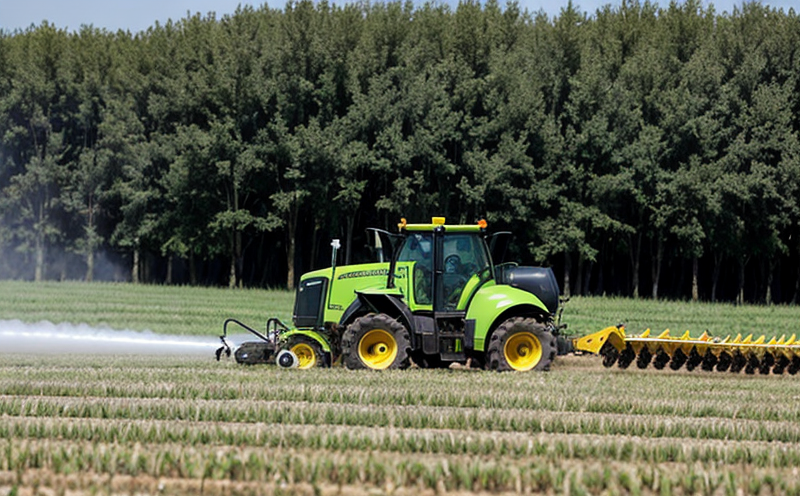Boscalid Residue Testing in Crops
The need to ensure food safety and environmental protection is paramount in modern agriculture. Boscalid, a widely used fungicide, plays an essential role in controlling fungal diseases in crops such as cereals, vegetables, fruits, and ornamentals. However, the presence of residues from Boscalid or any other pesticide beyond acceptable limits can lead to significant health risks for consumers and harm to the environment.
Boscalid residue testing involves a series of sophisticated analytical techniques aimed at quantifying the levels of this fungicide in harvested crops. This process is crucial not only for regulatory compliance but also for maintaining brand reputation and consumer trust. The European Union (EU) and other international bodies have established maximum residue limits (MRLs) to regulate Boscalid residues, reflecting their commitment to public health and environmental safety.
Our laboratory adheres strictly to these regulations, employing advanced analytical methods that ensure accurate and reliable results. These tests are critical for ensuring the safe use of Boscalid in agriculture while minimizing its impact on non-target organisms and ecosystems. The testing process typically involves sample collection from various crops, followed by meticulous extraction and purification steps, which are designed to accurately quantify Boscalid residues.
The analytical methods we employ include Liquid Chromatography-Mass Spectrometry (LC-MS/MS), which is highly sensitive and selective for detecting even trace amounts of Boscalid. This technology allows us to differentiate between Boscalid and its metabolites, providing a comprehensive assessment of the fungicide's presence in your crops.
The importance of this testing cannot be overstated. Accurate residue levels ensure that products meet international standards set by organizations like the European Food Safety Authority (EFSA) and the Codex Alimentarius Commission. Compliance with these regulations is not only a legal requirement but also a key factor in maintaining market access for your agricultural products.
Our lab's expertise in this area allows us to provide you with detailed reports that can help you make informed decisions about your production processes, thereby enhancing the safety and quality of your crops. We are dedicated to supporting your efforts towards sustainable agriculture and ensuring that your products meet stringent international standards.
- Accurate Quantification: Our tests ensure precise measurement of Boscalid residues in harvested crops.
- Compliance with Regulations: Ensuring adherence to EU and global MRLs for Boscalid.
- Trusted Results: Reliable data that supports your quality management and compliance processes.
- Sustainability Focus: Our services contribute to the sustainable use of pesticides in agriculture.
In summary, Boscalid residue testing is a vital component of modern agricultural practices. By adhering strictly to established standards and using cutting-edge analytical techniques, our laboratory can provide you with accurate and reliable results that are essential for meeting regulatory requirements and ensuring product safety.





